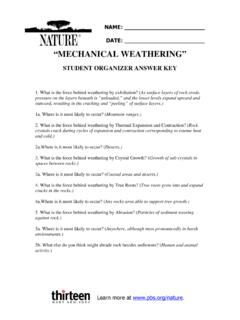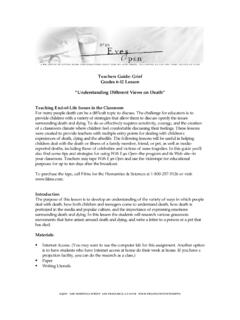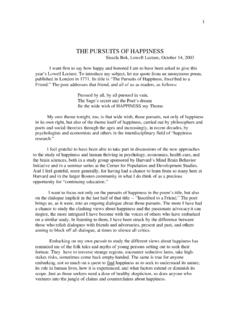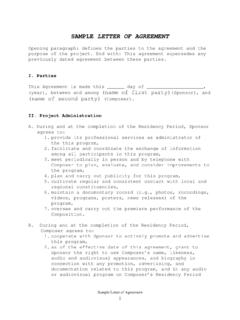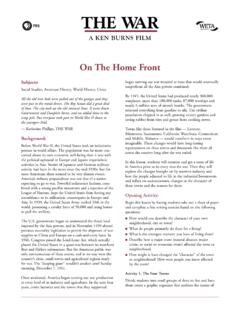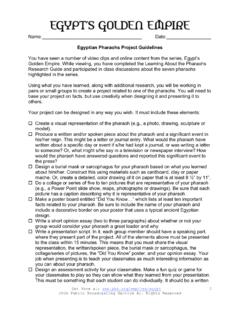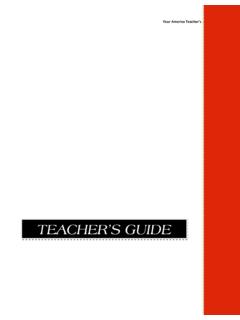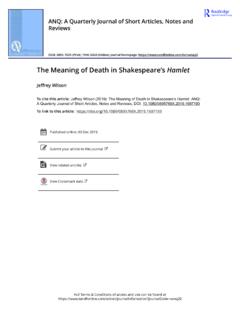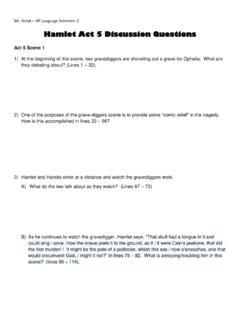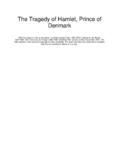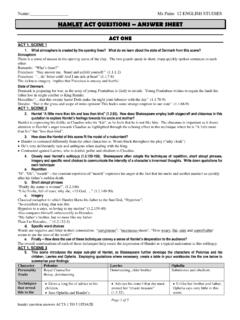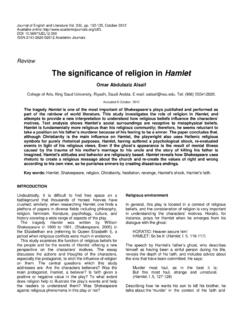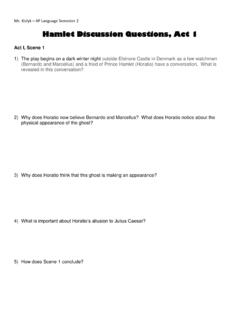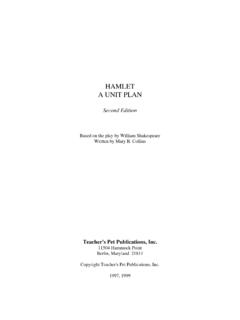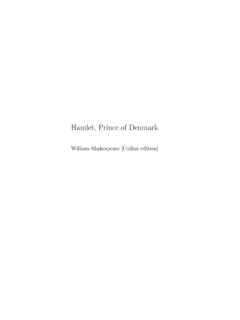Transcription of Hamlet's Soliloquy, Act II, Scene ii - PBS
1 Hamlet's Soliloquy, Act II, Scene ii O, what a rogue and peasant slave am I! 550. Is it not monstrous that this player here, But in a fiction, in a dream of passion, Could force his soul so to his own conceit* *imagination That from her working all his visage* wann'd,* *face/*paled Tears in his eyes, distraction in his aspect*, *mood A broken voice, and his whole function* suiting *the whole operation of his body With forms to his conceit? and all for nothing! For Hecuba!1. What's Hecuba to him, or he to Hecuba, That he should weep for her? What would he do, 560. Had he the motive and the cue for passion That I have?
2 He would drown the stage with tears And cleave the general ear with horrid speech, Make mad the guilty and appall the free, Confound the ignorant, and amaze indeed 565. The very faculties of eyes and ears. Yet I, A dull and muddy-mettled* rascal, peak, *dull spirited Like John-a-dreams*, unpregnant* of my cause, * a sleepy fellow/not filled with And can say nothing; no, not for a king , Upon whose property and most dear life 570. A damn'd defeat was made. Am I a coward? Who calls me villain? breaks my pate* across? *head Plucks off my beard, and blows it in my face? Tweaks me by the nose?
3 Gives me the lie i' the throat*, *calls me a liar As deep as to the lungs? who does me this? 575. Ha! 'Swounds,* I should take it: for it cannot be * God's wounds (a curse). But I am pigeon-liver'd2 and lack gall* *unable to take resentment To make oppression bitter, or ere this I should have fatted* all the region kites* *made fat/local crows or ravens With this slave's offal*: bloody, bawdy villain! *guts, internal organs Remorseless, treacherous, lecherous, kindles* villain! *unnatural Why, what an ass am I! This is most brave, That I, the son of a dear father murder'd, Prompted to my revenge by heaven and hell, Must, like a whore, unpack my heart with words, 585.
4 And fall a-cursing, like a very drab*, *prostitute A stallion*! Fie upon't! foh! *male prostitute About*, my brain! Hum I have heard *to work That guilty creatures sitting at a play Have by the very cunning of the Scene 590. Been struck so to the soul that presently* *immediately They have proclaim'd their malefactions;. For murder, though it have no tongue, will speak With most miraculous organ. I'll have these players Play something like the murder of my father 595. Before mine uncle: I'll observe his looks;. I'll tent him to the quick: if he but blench*, *flinch I know my course.
5 The spirit that I have seen3. May be the devil: and the devil hath power To assume a pleasing shape; yea, and perhaps 600. Out of my weakness and my melancholy, As he is very potent with such spirits, Abuses me to damn me: I'll have grounds More relative* than this: the play's the thing *more closely related Wherein I'll catch the conscience of the king . 605. 1A character from the story of the Trojan war; she is one of the characters described in the speech by the player that hamlet is responding to. 2 Pigeons and doves were believed to be mild and to lack "gall," one of the four "humours" that make up the body in the current belief.
6 Gall controlled the ability to be irritated. If you had no gall, you couldn't be irritated by others. 3 hamlet is referring to the ghost of his father he saw earlier.

